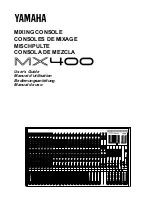
MAINTENANCE
- 13 -
Fuel tank volume
:
1.4 L
Refuel in a well-ventilated area before starting the engine. If the engine has been running,
allow it to cool. Refuel carefully to avoid spilling fuel. Do not fill above the fuel strainer
shoulder. After refueling, tighten the fuel tank cap securely.
Never refuel the engine inside a building where gasoline fumes may reach flames or
sparks. Keep gasoline away from appliance pilot lights, barbecues, electric appliances,
power tools, etc.
Spilled fuel is not only a fire hazard, it causes environmental damage. Wipe up spills
immediately.
Fuel can damage paint and plastic. Be careful not to spill fuel when
filling your fuel tank. Damage caused by spilled fuel is not covered
under warranty.
under warranty.
FUEL RECOMMENDATIONS
Use unleaded gasoline with a pump octane rating of 86 or higher,You can also use
other fuels, such as ethanol gasoline
These engines are certified to operate on unleaded gasoline. Unleaded gasoline
produces fewer engine and spark plug deposits and extends exhaust system life.
Never use stale or contaminated gasoline or an oil/gasoline mixture. Avoid getting dirt or
water in the fuel tank.
Occasionally you may hear a light ‘‘spark knock’’ or ‘‘pinging’’ (metallic rapping noise)
while operating under heavy loads. This is no cause for concern.
If spark knock or pinging occurs at a steady engine speed, under normal load, change
brands of gasoline. If spark knock or pinging persists, see an authorized servicing dealer.
Running the engine with persistent spark knock or pinging can
cause engine damage.
Running the engine with persistent spark knock or pinging is considered misuse,
and the Distributor’s Limited Warranty does not cover parts damaged by misuse.











































